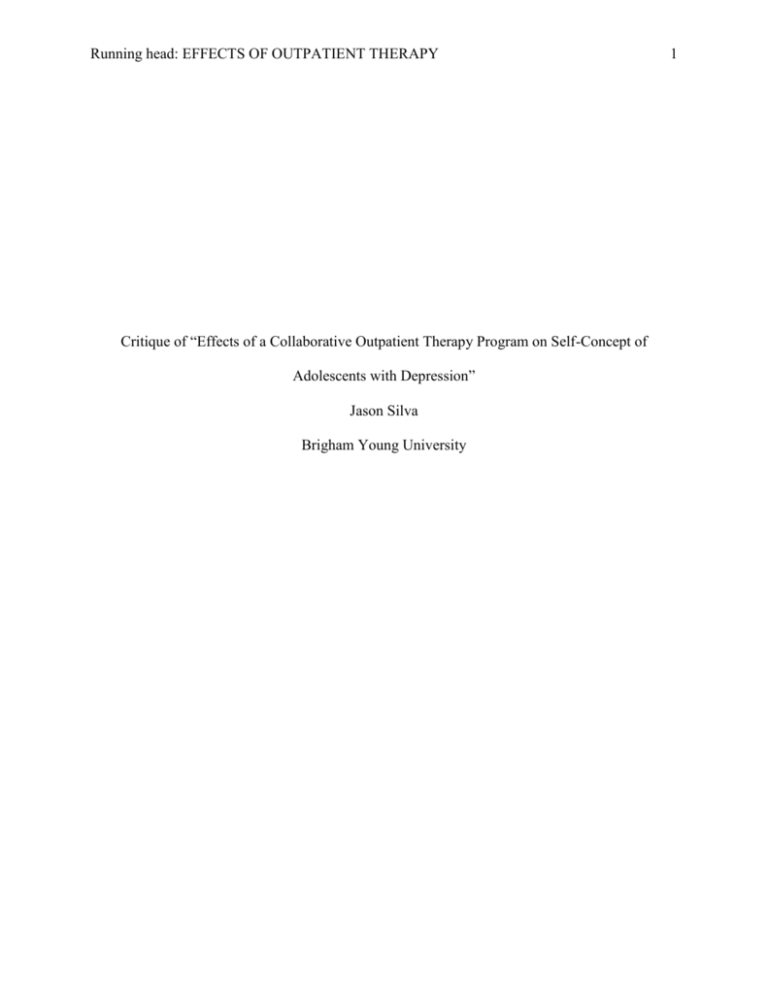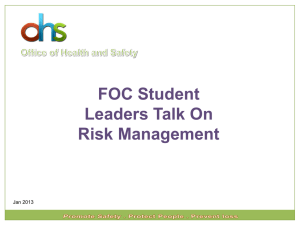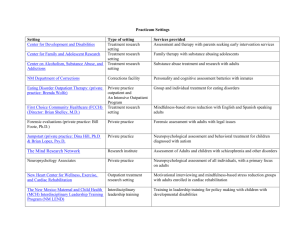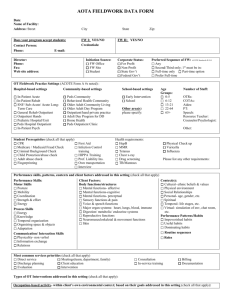RECM 460 article critique 3
advertisement

Running head: EFFECTS OF OUTPATIENT THERAPY Critique of “Effects of a Collaborative Outpatient Therapy Program on Self-Concept of Adolescents with Depression” Jason Silva Brigham Young University 1 EFFECTS OF OUTPATIENT THERAPY 2 Critique of “Effects of a Collaborative Outpatient Therapy Program on Self-Concept of Adolescents with Depression” For this assignment I read a research paper from the Therapeutic Recreation Journal titled “Effects of a Collaborative Outpatient Therapy Program on Self-Concept of Adolescents with Depression.” I will give a brief summary of the article, discuss the articles strengths and weaknesses, how the article can be applicable or useful, and my personal reaction to the article Summary This article explored the implications of using both Certified Therapeutic Recreation Specialists (CTRS) and Licensed Clinical Social Workers (LCSW) to treat adolescents with depression. This was one of the first research studies done in which both an LCSW and a CTRS were used in an outpatient setting to treat teen depression. In this study the author tried to take successful therapy techniques from several other disciplines. The outpatient therapy sessions were experiential in nature. Rather than teaching the subjects about a principle, the therapists found it better to create situations where the subjects could experience the principle for themselves. The goal of the outpatient therapy was to improve the self-image of the participants. Strengths This study showed that participants had a marked decrease in their feelings of depression and an increase in their self-image and self-esteem during and after their participation in the outpatient treatment program. The study also showed very promising results for the interdisciplinary use of the rec therapists and social workers. This approach combined traditional therapy techniques employed by social workers with the experiential, recreation based techniques employed by rec therapists. It was also notable that the participants that attended all of their group sessions experienced a better recovery of depression symptoms and better self- EFFECTS OF OUTPATIENT THERAPY 3 image than those who missed therapy sessions. I would be interested to see further research around the issue of therapy attendance and its correlation to symptom reduction. Weaknesses The major weakness of this article was that it only used seven participants. This makes it difficult to see the impact of this treatment. There was also no control group used which also makes it difficult to see the impact of this study. However, in defense of these facts, the author did note that because of budgetary constraints he was not able to have a larger pool of participants. There were also three participants that dropped out of the study before the therapy sessions began. Several of the participants did not see increases in self-image or decreases in feelings of depression at the times the author had hypothesized. The author himself admitted that his hypothesis had in-part been disproved because of this. Usefulness The results of this article are useful in the treatment of adolescents with depression and more specifically in helping the participants increase their self-image. At the very least this study shows enough evidence to warrant further future research. The model used in this article is easily replicated so others could try the same type of outpatient therapy program and likely have similar positive results. The article also showed promising results in interdisciplinary work social workers and recreational therapists. Personal Reaction This article was personally meaningful to me because of the interdisciplinary use of both the CTRS and LCSW because both are degrees I desire to obtain. I have long felt that a combination of formal therapy techniques combined with therapeutic recreation techniques in the treatment of clients. I am intrigued that such positive results were reported in this article. I also EFFECTS OF OUTPATIENT THERAPY 4 like that the study produced results and implications that the author had not expected and that he desired to explore those results and implications further. EFFECTS OF OUTPATIENT THERAPY 5 References Riley, K. (2011). Effects of a Collaborative Outpatient Therapy Program on Self-Concept of Adolescents with Depression. Therapeutic Recreation Journal, 45(1), 32-46.






